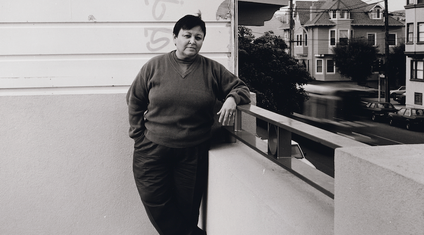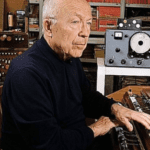Barbara May Cameron, born on May 22, 1954, was a Hunkpapa Lakota from the Fort Yates band of the Standing Rock Sioux Tribe. She was a multi-talented individual, known for her work as a photographer, poet, writer, and human rights activist. Throughout her life, Cameron left an indelible mark on the world through her passionate writing and impactful speeches, advocating for human rights and social justice.
After completing her elementary and secondary education, Barbara pursued her passion for photography and film at the Institute of American Indian Arts in Santa Fe, New Mexico. Her artistic talents and dedication to her craft earned her recognition and respect within the artistic community.
Cameron’s journey as an activist began when she came out as a lesbian and relocated to San Francisco in 1973. In the city, she became an advocate for LGBTQIA+ inclusion in the Native American community, addressing issues of racism in queer spaces. Her commitment to human well-being led her to actively participate in various programs and organizations.
One of her significant roles was serving as the executive director of Community United Against Violence, where she provided assistance and support to victims of hate crimes and domestic abuse. In 1988, the mayor of San Francisco appointed Cameron to the Citizens Committee on Community Development and the San Francisco Human Rights Commission. Later, the United Nations Commission on the Status of Women welcomed her as a member.
Barbara’s dedication to fighting AIDS and promoting childhood immunization was evident in her work with the San Francisco AIDS Foundation and the American Indian AIDS Institute. She collaborated with the US Department of Health and Human Services and the Centers for Disease Control, contributing to AIDS education and awareness programs.
As a pioneer in the intersection of LGBTQIA+ and Native American rights, Cameron co-founded the first gay American Indian liberation organization, Gay American Indians. She also played a key role in leading the Lesbian Gay Freedom Day Parade and Celebration for five years between 1980 and 1985.
Throughout her life, Barbara May Cameron received numerous accolades and awards for her outstanding contributions to the community. In 1992, she was honored with the Harvey Milk Award for Community Service, recognizing her exceptional work. She was also the first recipient of the Bay Area Career Women Community Service Award.
Additionally, Cameron actively engaged with the International Indigenous AIDS Network to promote AIDS education on Indian reservations across the United States. Her passion for empowering Native American women writers led to the establishment of the Institute on Native American Health and Wellness, with a focus on publishing their works.
Sadly, Barbara May Cameron passed away on February 12, 2002, at the age of 47 due to natural causes. Her legacy lives on through her groundbreaking activism and dedication to social justice. Though she may no longer be with us, her impact on the world continues to inspire and ignite positive change. As we remember and celebrate her life and contributions, we honor the remarkable legacy of Barbara May Cameron, a true trailblazer and advocate for a more inclusive and compassionate society.



